Introduction: Why proof of income matters for Florida vacation rentals
Summary: Florida’s vacation rental market is busy year‑round, but especially during snowbird and peak‑tourist seasons. Verifying a guest’s ability to pay helps hosts reduce defaults, manage risk and keep calendars full. This section sets a compliance‑first foundation you can apply across jurisdictions.
Last updated: September 2025
Whether you manage a beach cottage on Anna Maria Island or a high‑rise condo in Miami, verifying payment capacity is a smart, lawful step. Short stays booked on major platforms are usually prepaid. By contrast, mid‑term rentals (30+ days), direct bookings or larger security deposits often call for additional documentation.
This guide explains proof of income for vacation rentals in Florida—what to request, what to avoid and how to protect guest privacy. Hosts in the US, UK and Canada face different screening and data‑protection rules. Understanding those differences lets you ask for enough information to make a fair decision without over‑collecting sensitive data.
At FinancialDocsProvider.com we format and organize financial documents so they are clean, legible and easy to verify. We never change figures, dates or parties. Our role is to improve readability, preserve privacy and package files in a way that supports fast, compliant decisions.
Related Entities & Terms
- Pay stubs (US) / Payslips (UK & CA)
- IRS Form W‑2, 1099 & 1040 tax returns
- Canada Revenue Agency (CRA) T4/T1 forms and Notices of Assessment (NOA)
- HM Revenue & Customs (HMRC) P60/P45 and Self Assessment (SA302)
- Bank statements & transaction histories
- Credit reports & consumer reporting agencies (CRAs)
- Fair Housing Act (USA) & Equality Act (UK)
- Consumer Financial Protection Bureau (CFPB), Federal Trade Commission (FTC) & Internal Revenue Service (IRS)
- Financial Conduct Authority (FCA) – UK regulator for mortgages & rentals
- Financial Consumer Agency of Canada (FCAC) & privacy commissioners
- Tenant screening services & reusable reports
- Security deposits, application fees & rental agreements
Throughout this guide you will see these terms in context. Using the right language helps you set expectations with guests, document decisions properly and stay within legal boundaries.
What are the legal basics of requesting proof of income?
Summary: The core rules are consistent across jurisdictions: apply criteria uniformly, get written consent before pulling credit or background reports and protect personal data. In Florida and the wider US, fair housing and consumer‑reporting laws apply. The UK and Canada have similar equality and privacy frameworks.
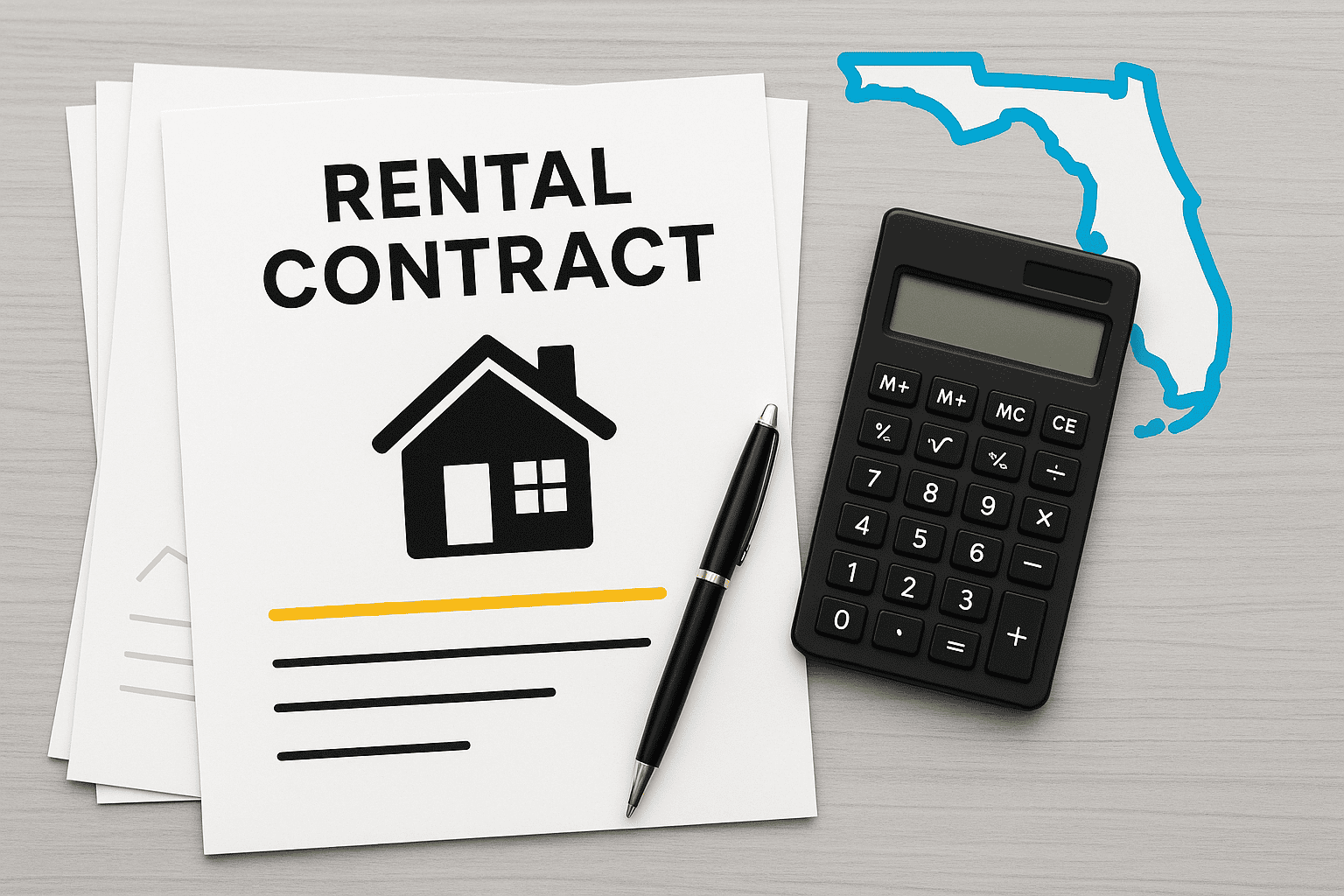
Florida does not impose statewide rent control or strict tenant‑screening caps, but hosts must follow fair housing and privacy rules. A sound application process collects identity details, employment history and explicit permission to verify information. Always obtain written consent before ordering a credit or background report and be clear about how you will use and store the data.
Many Florida property managers set neutral, objective income requirements—often 2.5–3.5× monthly rent—and request verifiable documents such as pay stubs, tax returns or bank statements. Whatever standards you choose, apply them consistently to every applicant. Discrimination based on protected characteristics (for example, race, religion, disability, family status or national origin) is unlawful. Publish your criteria and document decisions to show fair treatment.
Across the US, the Fair Credit Reporting Act (FCRA) governs the use of consumer reports. If you rely on a credit, background or tenant‑screening report to deny or condition a booking, provide the required adverse‑action disclosures. In the UK, the Equality Act 2010 prohibits discrimination, and the UK GDPR controls storage and sharing of payslips or bank data. Canadian landlords must follow provincial privacy legislation and the Canadian Human Rights Act when handling T4s, Notices of Assessment or bank statements.
Local ordinances and platform rules can add obligations. Some Florida jurisdictions require vacation‑rental permits and tourist‑development taxes. Others draw a line between “tourist” use and residential tenancies based on length of stay. If a booking may be treated as a tenancy, additional rules can apply. When in doubt, check your county or city guidance or consult a local attorney.
Compliance note: This article is for general information. It is not legal advice. Laws change, and your circumstances may be unique. Confirm requirements in your location before implementing policies.
For Florida privacy considerations, see our internal explainer on whether Florida landlords can ask for bank statements. It outlines practical ways to request documents while limiting the personal data you collect.
Which edits are allowed on proof‑of‑income documents?
Summary: You may edit a document to improve readability, privacy or format as long as you do not alter facts. The goal is to help hosts verify information efficiently without changing amounts, dates or parties.
Formatting often means cleaning up scans, merging pages and removing sensitive numbers. These changes make legitimate documents easier to read and store. Professional services can help by:
- Redacting personally identifiable information (PII): Mask account numbers, Social Security or National Insurance numbers, home addresses or phone numbers. Keep visible only what is necessary to verify identity and income.
- Improving legibility: Straighten pages, crop dark edges, enhance contrast and sharpen text so figures are crisp. Legible documents reduce mistakes during review.
- Converting file formats: Combine multiple stubs into one PDF, convert photos to high‑resolution PDFs and compress large files for easy upload. These steps change presentation, not content.
- Organizing multi‑document packs: Arrange pay stubs, W‑2/1099 forms, tax returns and bank statements in logical order with bookmarks or a table of contents. Clear organization shortens decision times.
- Annotating for clarity: Add page numbers, non‑destructive highlights or sticky‑note callouts to draw attention to year‑to‑date totals or employer contact lines. Annotations must not misrepresent data.
It is also common to watermark copies (“For verification only”) to deter reuse. Applicants may ask to remove scanner streaks or stains that obscure numbers. All of these edits are permissible because they do not change the figures, dates, payees or employers. Often, simple clean‑up ensures the file passes platform upload rules or property‑management software checks.
For context on which records to provide, our guide comparing bank statements and pay stubs explains when each is appropriate and how thoughtful formatting can speed approval.
- Allowed edits: redacting account numbers, cropping pages, improving legibility, merging to PDF and adding page numbers. These enhance clarity without changing facts.
- Illegal alterations: increasing pay figures, changing pay periods, substituting employers, removing negative balances or creating a pay stub from scratch. These misstate reality and can be fraudulent.
Ask a simple question before approving an edit: does it improve clarity, or does it change facts? Only the former is acceptable.
Mini‑scenario: A self‑employed guest provides a 20‑page tax return and three months of bank statements. We remove scanner artifacts, add bookmarks for Schedule C and monthly deposit summaries, and redact account numbers—without touching totals or dates. The host can now verify income quickly while the guest’s privacy stays protected.
What document alterations are illegal?
Summary: Any change that misrepresents facts—amounts, dates, employer names or account balances—is prohibited. This section highlights bright‑line rules and the consequences of crossing them.
Editing a document to mislead a host, lender or regulator is unlawful across the US, UK and Canada. Prohibited actions include:
- Changing income figures or dates: Modifying gross or net pay, year‑to‑date totals or pay periods on a pay stub.
- Falsifying employer details: Swapping out the employer’s name, address or phone number or forging signatures.
- Altering account balances: Inflating deposits, hiding overdrafts or deleting bounced payments from bank statements.
- Manipulating tax forms: Editing W‑2, 1099, T4 or P60 data to add income, change withholding or invent extra employers.
- Creating documents from scratch: Fabricating pay stubs, employment letters or tax returns to resemble genuine records.
Florida law penalizes false statements and forged documents related to leases. US federal law may treat false representations used to obtain housing or credit as fraud. The UK’s Fraud Act 2006 and Canada’s Criminal Code contain similar prohibitions. Penalties can include fines, civil liability and, in serious cases, criminal charges.
Hosts should never request that applicants “tidy up” numbers, and applicants should never ask a service provider to change facts. If you suspect tampering, request original PDFs from payroll providers, confirm employer contacts independently or use third‑party income‑verification tools.
Practical tip: Keep your communications clear. State that you welcome redaction for privacy and formatting for clarity, but that any alteration of figures, dates or parties will result in immediate disqualification.
When do vacation rental hosts need professional document formatting?
Summary: Requirements vary with stay length, payment method and guest profile. Short‑term guests usually prepay through platforms. Extended stays, direct bookings, self‑employed applicants or cross‑border visitors often need extra documentation.
Below are common scenarios where professional formatting or structured verification can help you reach a fair, fast decision.
Extended or mid‑term rentals
For stays of 30 days or more, many Florida managers treat the arrangement similarly to a residential tenancy and set an income multiple (often 2.5–3.5× monthly rent). A clean packet—two or three recent pay stubs, the prior year’s W‑2 or 1099 and bank statements showing matching deposits—lets you confirm the story at a glance. Clear presentation reduces back‑and‑forth and speeds move‑in.
Example: A snowbird books your Sarasota condo for 10 weeks. You request two recent pay stubs, a pension statement and a bank statement page showing available funds for the deposit. We combine and bookmark the files so the approver can verify income and liquid reserves within minutes.
Self‑employed or gig‑economy guests
Freelancers and small‑business owners usually do not have traditional pay stubs. Suitable alternatives include 1099s, Schedule C returns, bank statements showing regular client deposits and signed invoices. In Canada, a T1 General and CRA Notice of Assessment are common. UK applicants often provide SA302 calculations or a letter from a chartered accountant. With professional formatting, you can highlight consistent revenue, net income after expenses and year‑over‑year trends without changing any numbers.
Example: A Tampa host receives three months of Stripe deposit summaries from a designer. We redact customer names, add monthly totals and cross‑reference those totals to the designer’s Schedule C. The host can verify stability even without classic pay stubs.
International guests
Cross‑border documentation varies in format and terminology. UK visitors may provide payslips or P60s; Canadians may submit T4s. Ask for records in the currency used for rent or include a simple conversion note. Focus on employer name, regularity of pay and net income, not just headline totals.
Example: A guest from London provides six payslips and a P60. We combine them, annotate the pay dates for US readers and add a short cover note clarifying that “gross” and “net” reflect UK tax treatment. No financial data changes—only clarity increases.
Large deposits or damage waivers
For premium properties or longer stays, a higher security deposit can be reasonable. If a card hold is not feasible, you might request proof of liquid funds. Editing services can show balances while masking account numbers, routing numbers and unrelated transactions.
Example: A family booking a two‑month Orlando stay agrees to a $2,500 deposit by wire. We provide a redacted statement showing available funds and a highlighted balance line. The account number remains hidden, but the host sees enough to make a confident decision.
Corporate or government bookings
Corporate housing often involves employer letters or expense‑reimbursement policies. Request proof that the company is assuming liability or reimbursing the employee. Proper formatting ensures letters include contact details, the company’s domain email and a brief statement of responsibility—without exposing confidential business information.
Example: A university books three months for a visiting researcher. The department letter confirms sponsorship and provides an administrator contact. We format the letterhead cleanly and place it first in the packet so approvers see it immediately.
Whatever the scenario, ask only for information needed to confirm ability to pay. Over‑collection increases privacy risk; under‑collection increases default risk. A balanced, documented process is your best protection.
How does Financial Docs Provider work?
Summary: Our process emphasizes privacy, clarity and auditability. We format and organize legitimate documents, but we never fabricate numbers, dates or parties. Here’s how we work from intake to delivery.
- Intake: Upload your raw documents—pay stubs, bank statements or tax files—through our secure portal. We confirm they fall within our allowed‑edits policy.
- Reconciliation: We check completeness and basic internal consistency. If a multi‑page statement is missing a page or a pay period, we request the page to complete the packet.
- Formatting & redaction: We crop, straighten and enhance scans; redact PII like account numbers; convert images to PDF; and compile a logical package with bookmarks or a brief table of contents.
- Quality review: A second editor verifies instructions, double‑checks redactions and ensures the final bundle meets upload requirements and reads clearly on desktop and mobile.
- Delivery: We send a secure download link. Typical turnaround is fast and depends on volume. Rush service is available on request.
Our workflow is transparent and built to stand up to scrutiny. For pricing and timelines, see our proof of income editing services and pricing page, or contact our team with questions.
What should your compliance checklist include?
Summary: Use this checklist to gather the right information while respecting privacy and equality laws. It covers consent, documentation and verification steps for Florida vacation rentals.
- Define your criteria: Write down the minimum income multiple (e.g., 2.5× monthly rent), acceptable credit scores and any other neutral standards. Apply them the same way to every applicant.
- Provide an application form: Include fields for contact information, employer, monthly income and written consent to run credit or background checks. State how the data will be used and stored.
- Request recent documents: Ask for two to three recent pay stubs, a W‑2 or 1099 from the previous year and bank statements showing deposits. Self‑employed guests should provide tax returns (Schedule C, T1, SA302) and, where available, a simple profit‑and‑loss.
- Verify authenticity: Look for official logos, consistent fonts and matching year‑to‑date totals. Contact employers or use reputable verification tools if something looks off.
- Protect privacy: Keep only what you need, store it securely and set a retention period. In the UK and Canada, align with local data‑protection rules.
- Document your decisions: Record objective reasons for approvals or declines. If a consumer report influenced the decision, provide the required adverse‑action notice.
- Collect deposits legally: Disclose deposit terms in writing. Check local rules for notice, handling and return requirements, and be transparent about fees.
- Standardize communications: Use a template email that explains allowed vs. prohibited edits and lists acceptable documents for employees and self‑employed guests.
- Address cross‑border issues: If documents are in another currency, note the conversion rate and date used. Do not request more data than needed.
- Establish a retention schedule: Decide how long you will keep documents and how you will securely delete them when no longer needed.
- Create a verification playbook: Outline when to call an employer, request an original payroll PDF or ask for a tax transcript. Apply the same triggers to everyone.
- Plan for accessibility: Provide reasonable alternatives if a guest cannot supply a specific document due to disability, format issues or country‑specific differences—without lowering standards.
By following a documented process, you demonstrate fairness and deter fraud. Clear expectations also reduce friction, which means faster, better decisions for both hosts and guests.
What red flags should hosts watch for?
Summary: Careful review can reveal signs of tampering or misrepresentation. Use the checklist below to flag issues early and decide when deeper verification is warranted.
Watch for the following:
- Inconsistent fonts or spacing: Authentic pay stubs and bank statements use uniform fonts and alignment. Random style shifts can suggest editing.
- Suspicious figures: Identical net and gross pay every period, year‑to‑date totals that do not reconcile or deposits that appear only on statement end dates.
- Missing logos or watermarks: Employer names in plain text without branding, absent signature lines or blank fields where totals should appear.
- Blurry or pixelated text: Over‑smoothed numbers, low‑resolution boxes or artifacts around digits that may hide alterations.
- Mismatched employer information: Addresses or phone numbers that do not match company websites or public records.
- Out‑of‑order transactions: Date or check sequences that jump backwards or omit entries on bank statements.
- Metadata anomalies: PDFs showing unusual producers (e.g., image‑editing software) or creation dates that do not align with pay periods.
- Cover‑story mismatch: The narrative in emails does not match the documents—e.g., job start date conflicts with the first pay stub.
If you spot red flags, pause and verify. Ask for an original payroll PDF, call the employer using a publicly listed number or request official tax transcripts (IRS, CRA or HMRC). Good‑faith applicants typically welcome reasonable verification.
Where can you find reliable resources?
Summary: Regulatory guidance helps you keep policies current. Use the official resources below alongside our how‑to articles on formatting and privacy.
For official legal information, consult these resources:
- Florida Landlord and Tenant Act (Chapter 83) – outlines tenant rights, security‑deposit rules and eviction procedures.
- U.S. Department of Housing and Urban Development (HUD) – Fair Housing – provides guidelines on discrimination and protected classes.
- Consumer Financial Protection Bureau (CFPB) – explains consumer rights under the FCRA and offers tips for spotting scams.
- Gov.UK private renting – covers landlord and tenant responsibilities in the UK.
- Financial Consumer Agency of Canada (FCAC) – provides resources on managing money and consumer rights.
For deeper guidance on document formatting and compliance, explore our internal articles:
- Can Florida landlords ask for bank statements? Privacy & legal tips
- Bank statements vs. pay stubs: Which do landlords accept?
- Proof of income editing services – learn about our processes, pricing and compliance focus.
Staying informed reduces risk for everyone involved and creates a smoother experience for both hosts and guests.
FAQs
Summary: Below are concise answers to common questions about proof‑of‑income requests for Florida vacation rentals. Each answer emphasizes consistent standards and privacy‑first handling.
What documents can Florida vacation rental hosts request to verify income?
Hosts often ask for two to three recent pay stubs, a prior‑year W‑2 or 1099 and bank statements showing regular deposits. Self‑employed guests may provide tax returns, invoices or accountant letters. Obtain written consent before ordering credit reports or tax transcripts.
Is asking for proof of income legal for short‑term rentals?
For prepaid stays under 30 days, proof of income is rarely necessary. If you need extra assurance—such as for a large deposit or longer stay—requesting proof is lawful when you apply the same criteria to all guests and avoid discrimination.
What if a guest refuses to provide proof of income?
You can decline the booking, ask for a higher deposit or use alternatives such as a card hold or third‑party screening. Ensure your listing and pre‑booking messages explain these requirements in advance.
How long should hosts keep proof‑of‑income documents?
Retain documents only as long as necessary to make a decision or as required by your platform or local rules. Store them securely and destroy them when no longer needed to comply with privacy laws.
Are there alternatives to pay stubs for verifying income?
Yes. Bank statements, tax returns, employer letters, accountant certifications and government benefit statements (for example, Social Security or pension) can demonstrate ability to pay. Choose the documents that best fit the guest’s situation and verify authenticity.
Need accurate, reliable financial documents fast? Contact FinancialDocsProvider.com now.


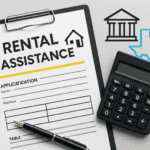
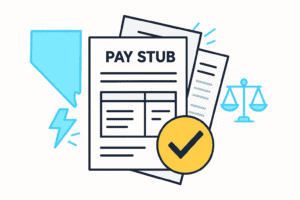
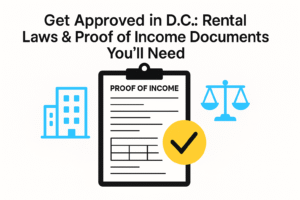
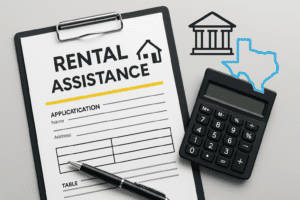


Add comment